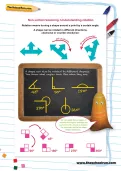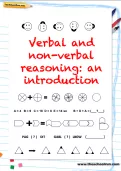Important update from TheSchoolRun
For the past 13 years, TheSchoolRun has been run by a small team of mums working from home, dedicated to providing quality educational resources to primary school parents. Unfortunately, rising supplier costs and falling revenue have made it impossible for us to continue operating, and we’ve had to make the difficult decision to close. The good news: We’ve arranged for another educational provider to take over many of our resources. These will be hosted on a new portal, where the content will be updated and expanded to support your child’s learning.
What this means for subscribers:
- Your subscription is still active, and for now, you can keep using the website as normal — just log in with your usual details to access all our articles and resources*.
- In a few months, all resources will move to the new portal. You’ll continue to have access there until your subscription ends. We’ll send you full details nearer the time.
- As a thank you for your support, we’ll also be sending you 16 primary school eBooks (worth £108.84) to download and keep.
A few changes to be aware of:
- The Learning Journey weekly email has ended, but your child’s plan will still be updated on your dashboard each Monday. Just log in to see the recommended worksheets.
- The 11+ weekly emails have now ended. We sent you all the remaining emails in the series at the end of March — please check your inbox (and spam folder) if you haven’t seen them. You can also follow the full programme here: 11+ Learning Journey.
If you have any questions, please contact us at [email protected]. Thank you for being part of our journey it’s been a privilege to support your family’s learning.
*If you need to reset your password, it will still work as usual. Please check your spam folder if the reset email doesn’t appear in your inbox.
What is a tutor-proof test?

If you’re preparing your child for the 11+, chances are you’ve thought long and hard about whether they should be tutored.
With many grammar schools heavily oversubscribed and offering places only to the very top performers, it’s natural to want to do everything you can to give your child the best chance of success.


Prepare For The 11+ Exam
- Essential English and maths skills
- Verbal and non-verbal reasoning questions
- Reading comprehension & CLOZE tests
But it’s often claimed that grammar school entrance exams are ‘tutor-proof,’ and therefore that there’s no need to tutor pupils to pass them.
In 2013, Buckinghamshire – an area where all children take a Transfer Test to see if they are suitable for a grammar school education – switched to a new 11+ provider that, at the time, claimed that its tests were ‘resistant to coaching’ and assessed ‘natural ability.’
This was the result of headteachers complaining that entrance exams favoured children from more privileged families who could afford tutoring.
Five years later, however, the new test provider had withdrawn its claims about its exams being tutor-proof, and Buckinghamshire had switched back to its original provider.
So are 11+ tests genuinely tutor-proof? And what does that mean for your child?
What does ‘tutor-proof’ mean?
The phrase ‘tutor-proof’ means that children can’t improve their test scores by being tutored. The theory is that 11+ tests should assess children’s innate academic ability (across a combination of verbal and non-verbal reasoning, English and maths), rather than what they’ve been taught by a tutor.
This is important because children need to be able to hold their own in an academic school.
‘Grammar schools need to know if a child is academically capable of thriving in a grammar school environment,’ says Alastair Durno, Head of Admissions Testing at GL Assessment, one of the UK’s biggest providers of 11+ tests.
‘If our tests were passed more easily by those who had been heavily tutored, the test would, in effect, be testing the help they had received, rather than their potential to succeed.
‘There is then the risk that this wouldn’t benefit the child, as they would find keeping up at school a real struggle.’
Tutor-proofing is also important because it gives a fairer chance to children from disadvantaged homes, whose families are unlikely to be able to afford tutoring. Currently, 28% of children receive Pupil Premium – a payment made to schools to support students from low-income homes – but only 4.5% of those gained a grammar school place in 2018.
A tutor-proof test should, in theory, mean that a bright child from a disadvantaged family has as much chance of winning a grammar school place as a child from a well-off family who has been tutored.
Are 11+ tests genuinely tutor-proof?
Although some 11+ providers have historically claimed that their tests are tutor-proof, the reality is that this isn’t the case.
We asked the two main providers whether they believed their tests were tutor-proof.
Emma Beatty, Executive Director at the Centre for Evaluation and Monitoring (CEM), said, ‘We provide selection assessments whose aim is to minimise the impact of coaching, and thereby increase fair access [to grammar schools]. However, we do not claim that our assessments are tutor-proof.’
In addition, CEM’s website states, ‘The assessments are designed to enable children to demonstrate their academic potential and ability without the need for coaching and excessive preparation. The assessments support developed abilities in reading and maths that rely on genuine understanding rather than learning through repetition.’
Alastair Durno of GL Assessment believes that, although they try to minimise the impact of coaching in their assessments, a genuinely tutor-proof test is the Holy Grail.
‘We don’t believe a tutor-proof test can exist,’ he says. ‘Tutoring will always exist for whatever kind of entrance test is in place, and some parents will always employ a tutor, if they think it will help even remotely.
‘The important thing is that the tests are as fair and impartial as they can be, and this is what we strive for.’
Tutors also believe that many children will need extra coaching and support to pass the 11+. ‘Realistically, the 11+ questions are set for a higher performing Year 6 student who is well-versed in competitive exam-writing skills,’ says Tania Khojasteh, Managing Director and Head Tutor at London-based tutoring service Über Tutors.
‘Students with any lesser academic foundations or lack of exam practice need the coaching and personalised teaching to have a realistic chance.’
How are tests developed to minimise the effects of coaching?
A truly tutor-proof test, then, doesn’t currently exist. But test providers are doing all they can to minimise the impact of coaching.
‘It takes us a minimum of two years to develop, research and trial our questions, and only after they have been tested on a wide range of children from across the country and our statisticians have pored over the results to check for any unforeseen bias are they included in our admissions tests,’ says Alastair.
‘We also feature a number of curriculum-neutral questions in our admissions tests – for example, verbal and non-verbal reasoning – that aren’t based on the curricula taught in primary schools. This helps grammar schools to see what children are capable of, not just what they have been taught so far at school.’
Entrance exams are also constantly changing in format and content, in an effort to prevent tutors predicting what will be on the paper from year to year and ‘teaching to the test.’
‘We balance consistency to ensure reliability from one year to the next with making sufficient changes to defeat over-coaching,’ says Alastair. ‘We continually research and develop new question types for this purpose.’
On its website, CEM states, ‘New assessment paradigms are introduced to reduce the predictability of assessment content.’
Indeed, CEM goes one step further and doesn’t produce practice papers – another move towards minimising the impact of coaching, as a significant element of tutoring involves children going through past and practice tests.
‘In order to maintain the fairness of our assessments, we do not provide any commercially available practice materials… or endorse any other commercially available resources or tuition service,’ the website explains.
‘All candidates receive standardised familiarisation materials, designed to prevent undue anxiety for candidates sitting the assessments.’
Does that mean your child doesn’t need a tutor?
Not necessarily. The skills and knowledge children need for the 11+ aren’t routinely taught in state primary schools, so all pupils need to prepare for the test, whether that’s with the support of their family or a paid tutor.
‘Preparation is important, as it is with any new activity,’ Alastair explains. ‘It helps if children familiarise themselves with the type of entrance exam they will be taking, its length and format, experiencing exam-type questions perhaps for the first time, and even the place where the test will be taken.’
Tania agrees. ‘Our tutors are mentors, and will support the child in feeling less anxious by giving them a personalised support system during a stressful period,’ she says.
‘They also aim to build and boost their maths and literacy foundations, which will also improve their school performance, and to teach and practise exam writing skills. Many primary school students have rarely practised taking serious exams, and lack the vital skills to sit exams that require stamina.’
Whether or not to hire a tutor is a decision that every family must make for themselves, but regardless of your choice, it’s important to make sure your child feels well prepared for the test.
While CEM doesn’t provide or endorse past or practice papers, there is a wide range of unaffiliated preparation materials available that many parents and tutors like to use, published by companies like CGP.
GL Assessment, meanwhile, does provide practise materials. ‘Most children won’t be familiar with verbal and non-verbal reasoning tests, so to help them become accustomed to these question types and to our test format, we have created a range of free 11+ familiarisation materials,’ Alastair says.
‘If parents want more, we have just published a selection of 11+ Practice Packs, which include papers in verbal reasoning, non-verbal reasoning, English and maths.’
TheSchoolRun also have an extensive selection of 11+ practice materials to prepare your child for the test, as well as advice on helping them succeed if you decide not to use a tutor.








